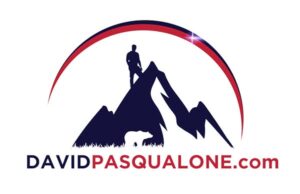When you own and operate a business, many things need your attention. Therefore, as you’re so busy with daily operations, it’s easy to overlook some potential threats. However, neglecting these risks could have severe consequences for your company. As a business owner, you are liable for any debts or obligations incurred while running the company. This means that if something goes wrong—whether due to negligence or another factor—you stand to lose assets like property and money to cover financial losses. To protect yourself and your business from costly liabilities, you can take several legal actions immediately to reduce risk exposure. Here are 4 legal steps that will help keep your business healthy and safe:
Have a lawyer review your company’s contracts.
Contracts are legally-binding agreements that spell out the terms and conditions of any business agreements you make. They could include purchase/sales agreements, service contracts, and non-disclosure agreements. Whenever you sign a contract, you accept responsibility for compliance with the terms of that agreement. However, if a dispute arises, your opponent could take you to court, and a judge could force you to follow the contract terms, even if the other party breached it. Hiring a lawyer to review your contracts is a crucial way to discover any potential issues that could cause you problems in the future. You can also have the lawyer recommend any changes that would strengthen the contract. This one-time investment will pay off continuously throughout your business’s lifespan. Contracts are a necessary part of doing business. By having them reviewed, you can avoid costly problems in the future. Why not get in touch with Wegman Partners?
Make sure you have the right kind of insurance
Certain types of insurance are essential depending on the type of business you run. For example, it’s a good idea to have general business insurance, including liability coverage. This will help cover financial losses and legal costs to defend yourself in court if someone sets up a case against you. If you are sued and lose the case, the judge could order you to pay the other party’s costs. This is called liability. General business insurance can help you avoid this situation. You may also have employees who work for you. If someone is injured while on the job, their workers’ compensation claim may be your company’s responsibility. Out of the 4 legal steps, this one can make or break a business in today’s sue happy environment.
Review your employee handbook and conduct onboarding training
For your employees to fully understand how your company works, you’ll want to provide a clear handbook outlining expectations and policies for your employees. This includes everything from how the company is structured to procedures and practices for daily operations. Furthermore, you should periodically review your handbook with your employees to ensure they are updated on any changes. This is one of the essential steps for keeping your employees safe and healthy, as they are aware of how they are expected to conduct themselves in the workplace. Conducting onboarding training for new hires is another excellent way to ensure that all employees are up to speed on company policies. This is a relatively inexpensive way to help your company run more smoothly. It will also help reduce the risk of violating company policies and facing legal action. While it’s true that in some cases, you can’t legally force employees to comply with company policies, this doesn’t mean that you shouldn’t have them. A solid onboarding process and handbook will help your company run more smoothly and may also help protect against discrimination in hiring practices.
Create a plan in case of work-related accidents
As an employer, you are responsible for providing a safe work environment for your employees. You may already have safety procedures, but you should also create a plan in case of work-related accidents. This could include a first aid kit, an emergency kit, and instructions for contacting emergency personnel. It could also have information on how to deal with hazardous materials properly. This is especially important if you operate in a field that may involve hazardous materials—such as a construction site. If an employee is exposed to dangerous materials, you may be required to report it to a state agency. Finally, you have the option to contact experts to set up a plan for specific work-related accidents. For example, suppose there has been an accident involving a truck or vehicle connected to your business. In that case, you can contact expert trucking litigation professionals to consult with you so you can take legal steps. You may also be legally required to offer medical treatment to injured employees. Having a plan in place for how to deal with these situations will help you reduce the risk of fines and lawsuits. It may also help you avoid the need for expensive insurance policies.
Hope this short article, Protecting Your Business With These 4 Legal Steps, helped you and your business.
Have more questions? How about a Free 30-minute Consult? 😃
Schedule My Free Consultation Now!
Special thanks to the following source(s) for the image(s) used in this article:
Enjoy a Great Podcast? 🤓
Check out this Remarkable episode to continue the conversation and help you grow!

Leadership, Not Politics: Why Mike Lindell is Running for MN Governor & Remarkable MyPillow Deals
Key Takeaways: Leadership, Not Politics 2026 Gubernatorial Run: Mike Lindell officially announced his run for Governor of Minnesota on December 11th, positioning himself as a leader rather than a career politician. Fiscal Accountability: Mike aims to tackle widespread welfare fraud in Minnesota, which he estimates ranges from $9 billion to $18 billion. Economic Reform: By eliminating systemic fraud and implementing vetted programs, Mike believes the state could potentially eliminate state...
 Listen Now!
Listen Now!
THANKS FOR LISTENING TO THE REMARKABLE PEOPLE PODCAST! 🎈
Click Here for More Remarkable Episodes on Almost Any Topic You Can Imagine.😃
DISCLAIMER: This is an affiliate article. We post affiliate articles with the intent of helping you grow. They are not written, researched, or necessarily endorsed by our team. They are simply content submitted to us by what appears to be respectable affiliate sources, people, and organizations, which upon initial review, seem solid and helpful to our community, so we post them. It is up to you to personally verify the facts, links, organizations mentioned, the validity of the information presented, and any/all claims made in the article(s). To report an issue with any of the information, links, or organizations mentioned in this, or any content posted on our website, or if you simply have a question or need something we can help you with, please contact us now.






